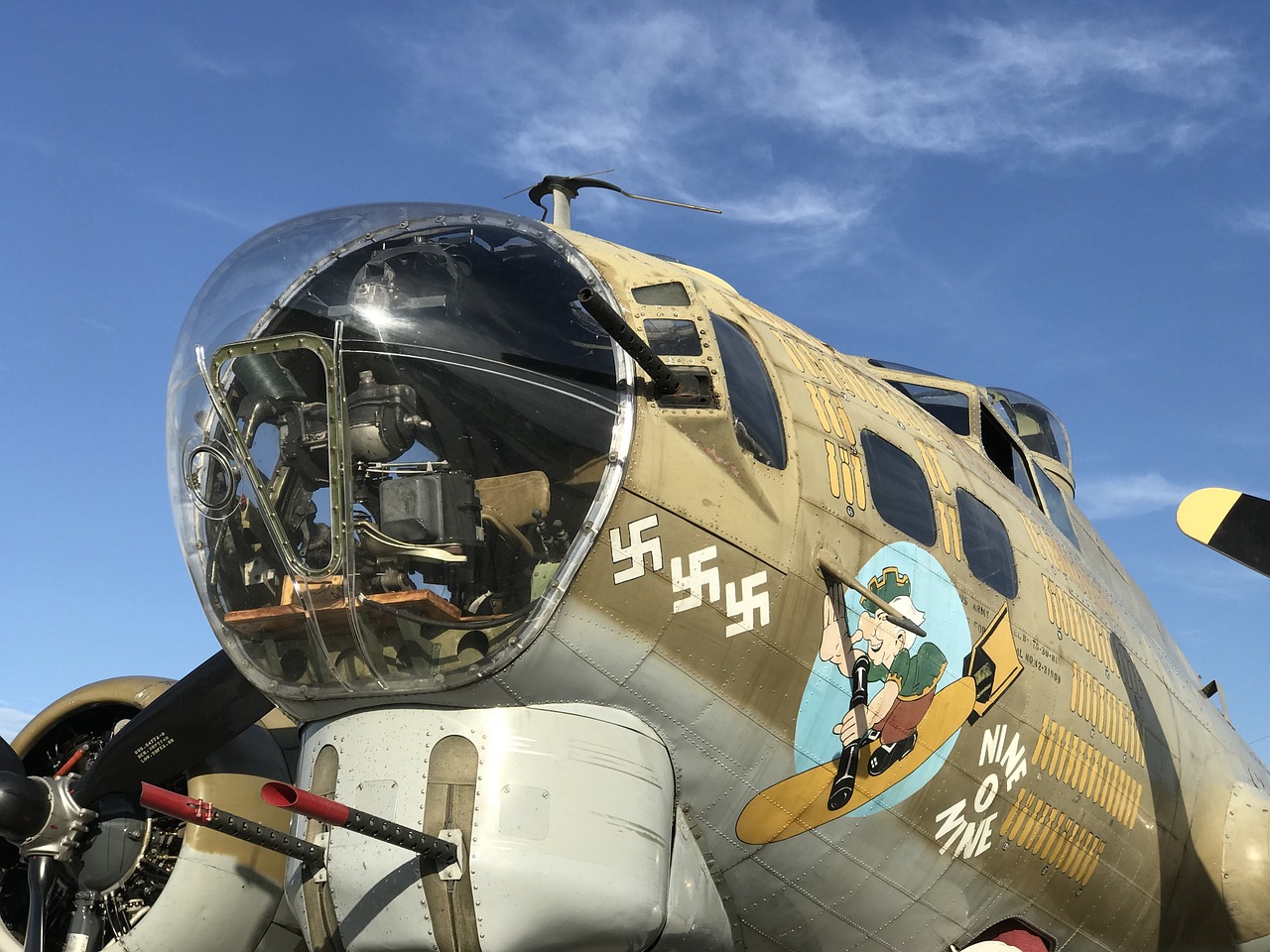Stationed in England during World War II, the airmen of the Mighty Eighth Air Force lived a life that cycled between terror and routine boredom.
These boys, many of them barely in their twenties, found themselves not only far from home in a foreign country but enduring the unique and harsh realities of a new type of war—a war where combat on the battlefield took place in machines 25,000 feet in the sky.
Despite these hardships, the men found solace in camaraderie, writing letters home, and fleeting moments of respite in local pubs or nearby villages. Even on the ground, their minds were never far from the skies.
Every day, airfields scattered across the English countryside buzzed with activity as crews prepared for the next mission. There was always another mission. Each mission brought the relentless threat of enemy fighters, flak bursts, and mechanical failures with the B-17. In the sky, crews faced the bitter cold, often enduring frostbite, oxygen deprivation, and extreme fatigue.
The psychological strain was immense, and it took a toll. Post-mission, the weight of witnessing comrades lost in battle or seeing aircraft shot down haunted many airmen. Every mission could undoubtedly feel like a brush with death, and 25 missions seemed like a faraway, impossible dream.

The Mighty Eighth Air Force played a pivotal role in the war effort, contributing significantly to the eventual defeat of Nazi Germany. Their strategic bombing campaigns targeted factories, railways, and supply lines, disrupting the German war machine and weakening its ability to sustain its forces and maintain the necessary strength. Still, for every B-17 shot down, there were ten lives lost forever. Whenever I see old wartime footage of a B-17 blown up and falling from the sky, I think about those men and their families.
Today, their legacy endures as a testament to the bravery, sacrifice, and unwavering resolve of thousands of ordinary men called to extraordinary service, whose contributions helped shape history.
The Joe Noyes Crew were just a handful of the over 350,000 service members assigned to the 8th USAAF during the war. I will always be grateful for their sacrifices, and I think about them whenever I visit England today. I remember the first time I flew into London when I was about fourteen years old. The airliner made a turn in preparation for final approach, and I got a glimpse of the British countryside outside. The land was the vivid shade of green I’d read about in books about the Mighty Eighth. I’ll never forget it.
During the Second World War, life in wartime England was marked by resilience and adaptability amidst many immense challenges. Despite the hardships, a sense of unity and determination prevailed, fueled by the leadership of figures like Winston Churchill and a shared commitment to the war effort. Similar to the American airmen assigned to bases all across East Anglia, the locals found solace in camaraderie. They shared a common goal.
I cannot be present for upcoming The 95th Bomb Group (H) Reunion in May 2025, but I hope those who can attend will enjoy it for me and cherish the memories made. Registration forms for the reunion must be submitted by January 31, 2025, and the itinerary looks like a lot of fun that I’m sad to miss. I look forward to the photos though. And one day, I’ll see England again.


Leave a comment